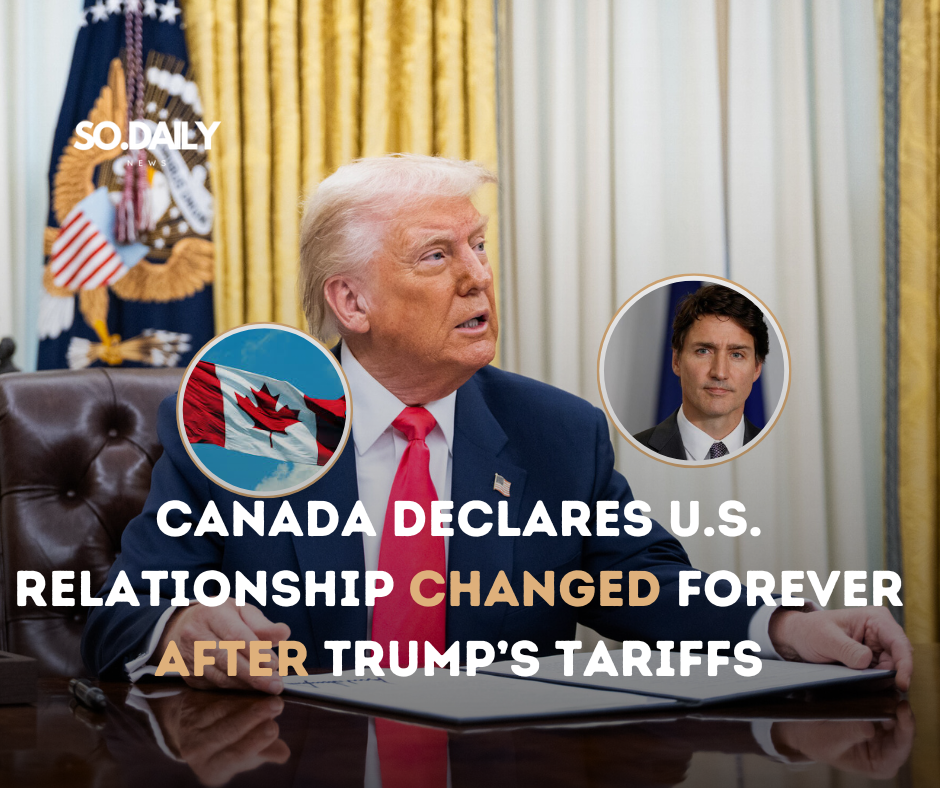In a striking declaration that signals a turning point in North American diplomacy, Canadian officials have stated that the country’s relationship with the United States will never return to what it once was. This announcement comes in the wake of sweeping new tariffs imposed by former President Donald Trump, reigniting tensions that had initially flared during his first term in office.
Canadian Foreign Minister Mélanie Joly made headlines this week when she announced that Canada could no longer rely on the United States in the way it had for decades. Speaking to the press, Joly said, “When you treat your best client the way we’ve been treated, it means that you want fundamentally to change the way you’re operating.” Her remarks encapsulated the widespread sense of disillusionment now felt by many in Canada’s political and business communities.
The spark for this diplomatic rift was Trump’s reintroduction of tariffs on key imports, including a 25% duty on Canadian automobiles and other goods. Trump’s so-called “Liberation Day” tariffs were framed as a move to restore American industrial dominance, but they have been met with fierce resistance north of the border. These tariffs come at a time when Canada had been seeking to rebuild trust with the U.S. after previous trade battles during Trump’s first term.
In response, Canadian Prime Minister Mark Carney swiftly announced retaliatory tariffs, also at 25%, on U.S.-made vehicles that do not meet the standards outlined in the United States-Mexico-Canada Agreement (USMCA). Carney did not mince words, calling the U.S. move “a tragedy for global trade” and accusing the former U.S. president of undermining the very foundation of North American cooperation.
But this is more than just a tit-for-tat tariff war. Many in Canada now believe that the underlying trust that supported decades of economic and diplomatic collaboration has been permanently eroded. For years, Canadians viewed the U.S. as a reliable ally and partner—a nation with shared values, mutual interests, and deep economic integration. Today, that view is changing.
Public sentiment in Canada has shifted dramatically. A growing number of Canadians are calling for a reduced reliance on the United States for trade and travel. Surveys show an overwhelming majority—over 90%—support initiatives to diversify Canada’s economic partnerships. Canadian consumers have begun boycotting American-made products, and some provinces are encouraging local governments to source materials from within Canada or allied nations outside of the U.S.
The economic fallout is already visible. Markets around the world are feeling the ripple effects. Major indices have dropped amid growing concerns about a broader trade war. China’s reaction has added fuel to the fire, as it announced new tariffs on American goods, prompting fears of a domino effect. In Europe and Asia, trade leaders are scrambling to adjust strategies to avoid being caught in the escalating crossfire.
The bigger picture here is one of shifting alliances and strategic recalibrations. Canada is now actively pursuing stronger economic ties with the European Union, the United Kingdom, and Pacific Rim countries. Prime Minister Carney has publicly emphasized the need for Canada to stand independently and strengthen relationships with like-minded democracies that value fair trade and multilateral cooperation.
While President Joe Biden has taken steps to mend the U.S.-Canada relationship, the long shadow of Trump-era policies continues to linger. Canadian officials have made it clear: the trust that once underpinned their partnership with the U.S. has been shaken to its core. The days of assuming unwavering friendship are over. What comes next is likely to be a more pragmatic, guarded, and diversified approach to foreign relations—one that acknowledges that even the closest allies can drift apart under the pressures of nationalism and protectionism.
In the eyes of many Canadians, the message is clear: it’s time to stand on their own terms.
